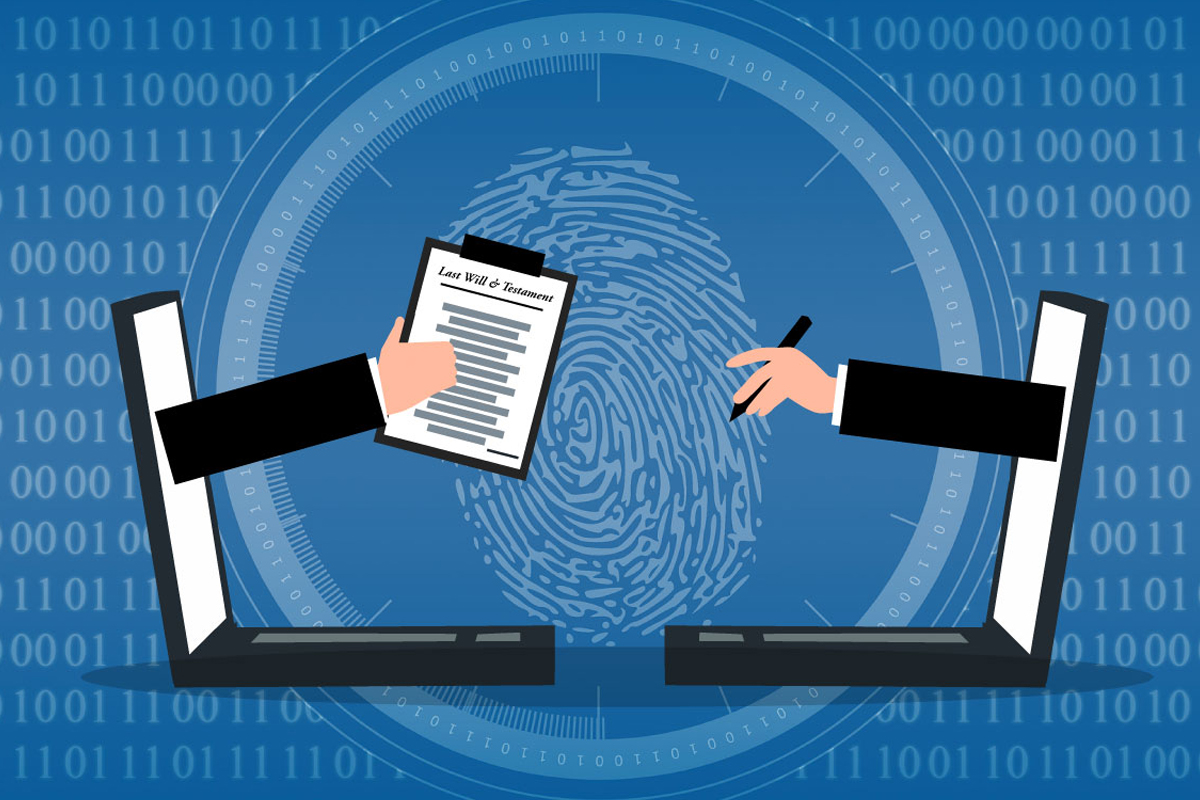If you are of an age where Latin lessons formed part of your school week, then you’ll also have had the pleasure of learning to write between 2 parallel lines in a book dedicated to perfecting your cursive. Latin has long fallen from most curricula, and the reliance on tapping, typing and swiping in the digital age has seen many children’s ability to write (and read) cursive fall off dramatically. In Finland, lessons in cursive writing were removed from the curriculum in 2016. Most forms that we are required to complete in our daily lives are now digital. You can even buy things just by holding your mobile phone in front of the card reader. Given this technological shift, it’s hard to argue for spending too much time making children develop their flowing penmanship. With even the ability to login to banking apps using your fingerprint, there could soon come a time where people are never signing their names any more. When it comes to making a Will, however, some things haven’t changed.
We recently dealt with a client who wanted to make changes to their existing Will. All was in order except for the fact that the Will had not been signed. Had the person passed away and their family tried to the use the Will, it would have been viewed by the Court as invalid. Even if no one was contesting the Will, it could not have been used and the estate would have been distributed according the rules of intestacy. Bereavement is difficult enough without having to deal with unexpected (and potentially costly) legal challenges at the same time.
Similar to Wills, a Lasting Power of Attorney (LPA) also has to be hand-signed by the donor (the person making the LPA), the solicitor and two witnesses in a relevant order. Unlike a Will, which can be stored at home, with your solicitor, or even with a friend, the signed LPA needs to be registered with the Office of the Public Guardian to become legally valid. In the past, we have dealt with clients who have had their LPA drawn up but subsequently failed to register it. Had their family needed to call upon the LPA, they would not have been able to do so. Again, your loved one losing their capacity to manage their own affairs is a challenging enough time. Being presented with numerous legal hurdles is the last thing you need to be dealing with on top of this. It’s also something that can easily be avoided.
If a Lasting Power of Attorney is not registered, financial institutions, healthcare providers, and other third parties, will not accept it as authority to act on the donor’s behalf. If the donor’s assets are paying for, or contributing towards, care costs then these costs would have to be covered by the family until the LPA had been registered and came into force. Registration can take 8 – 10 weeks, or much longer if there are any objections to the LPA.
At Bramhall Solicitors, our team are highly experienced in writing Wills and Lasting Powers of Attorney. We will listen to your wishes, explain any potential challenges that your Will or LAP could face, and make sure everything meets the requirements of the Courts and the Office of the Public Guardian. To find out more, call us on 0161 439 9777.

